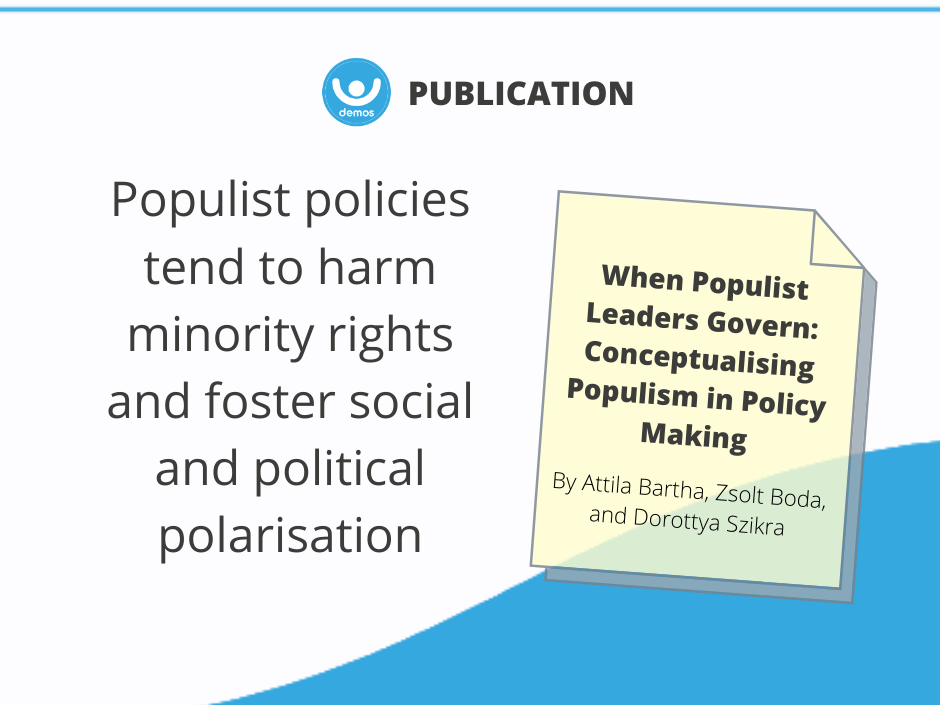DEMOS Elaborates on How Populist Policies Work
* Ideologically diverse, populist policies are radical, favour reforms, and reflect majoritarian preferences. * Populist leaders communicate directly with voters, downplaying policy expertise, opposition parties, and civil society actors. * To promote policies, populist leaders deploy highly emotional and divisive narratives. The rise of populist governments, particularly in Eastern Europe, has offered an opportunity for academia to study how populist leaders make policy. In a study released today, DEMOS proposes that populist policy making might be successful because of its “chameleonic” features, even if it leads to negative outcomes. Populist policies draw from many ideologies and reflect the preference of majorities, but are usually harmful to minority rights. Often, they are unpredictable and promote radical, fast-paced changes. As a result, what is left is a tendency to divide society, downplay the rule of law, and oppose conventional policy making as established in liberal democracies. By disentangling the relationship between populism and policy making, the study casts light on an unstudied aspect of populism. According to the authors Attila Bartha, Zsolt Boda, and Dorottya Szikra, from the Centre for Social Sciences, which coordinates DEMOS, knowing more about the theme has also practical policy implications. “Foremost, it helps us explain how and why populists survive in power even in the longer run,” Bartha says. “Reasons for success of populist governance might include how flexible they are in adopting policies and also how closely they follow majoritarian preferences of the electorate.” More than analysing the content of populist policies, the authors also discuss how they emerge and how populist leaders speak about them to thrive. Populist governments usually disregard the role of institutions in the policy process. They also limit conventional policy expertise, the opposition parties, and civil society’s opinions. Instead, they establish a direct communication with the electorate. The tone of the message is emotional and refers to crisis and “enemies” of society in order to garner public support. As a result, the authors pinpoint that the entire policy process harms minority rights, weakens the rule of law, and fosters social and political polarisation. “The entire process leads to the decline of participatory democracy and decreases the quality of policy making,” Bartha explains. MORE INFORMATION Read the full press release and download the publication on the DEMOS website: https://demos-h2020.eu/en/in-new-study-demos-elaborates-on-how-populist-policies-work
Keywords
DEMOS, policy-making, policy, Hungary, populism, research, science, policy recommendations, scientific advances, civil society



